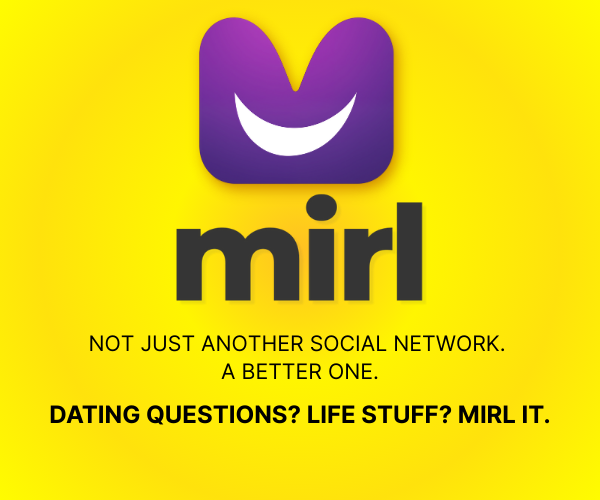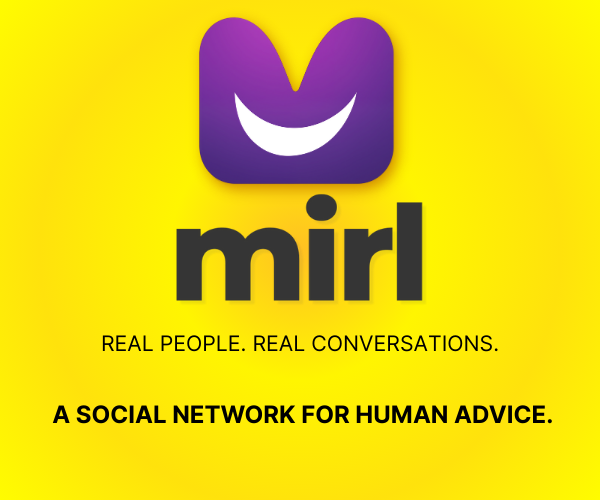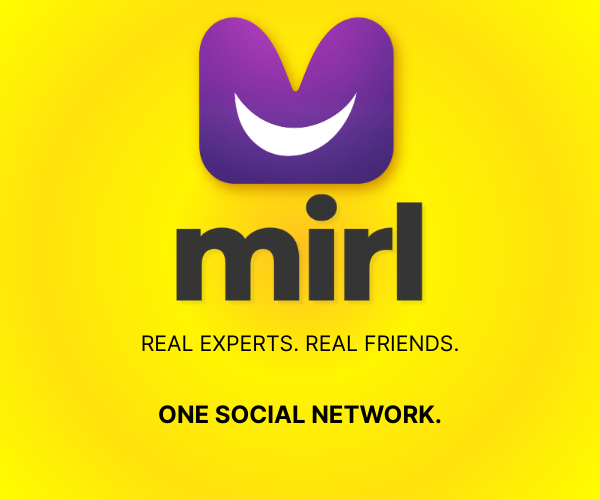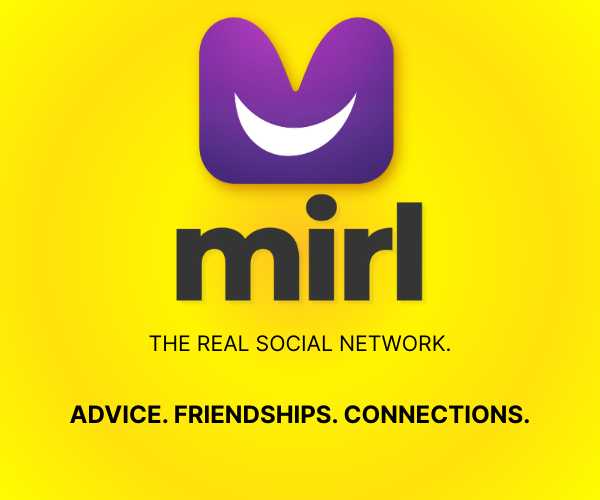When People Use You: 24 Signs & Ways to Respond & Stop Being a Doormat

Some people are all about take, take, take, but what if you’re the one doing all the giving? When people use you, it’s time to wave goodbye.
In an ideal world, everyone we meet would be sincere, genuine, and have our best interests at heart. Ever found yourself thinking, “How to deal with people who use you?” You’re not alone. It’s like an unwritten rule in the book of life that at some point, we’re going to bump into folks who are more about take than give. On far too many occasions than most of us would like to admit, when people use you, you find yourself at the mercy of other people and their not-so-great actions.
Let’s face it, the human race is a mixed bag. We’ve got the good, the bad, and everyone else who’s just trying to figure it out. Nobody’s perfect, and that’s okay. But what’s not okay is feeling like you’re constantly on the losing end of the deal in your relationships.
Whether it’s a friend who always takes and never gives, a partner who’s more leech than a lover, or a colleague who’s mastered the art of mooching off your hard work, we’ve all been there. [Read: 25 must-know secrets to be successful in life & transform your future today]
Is It Human Nature to Use Others?
But why are some people as genuine as an unfiltered selfie, while others seem to have taken a few too many courses in User-ology 101?
Diving into the psychology behind this, it’s like our brains are wired with a “me-first” survival instinct. From the dawn of time, humans have been playing the survival game, and sometimes, using others has been a shortcut to getting ahead. It’s not the classiest move in the book, but hey, it happens.
So, when we talk about how to deal with people who use you, we’re not just dealing with a social faux pas; we’re tapping into some deep-rooted survival tactics. Some folks, it seems, have their survival dial turned up way high, often at the expense of others.
Recognizing the signs people use you isn’t just about safeguarding your emotional well-being, it’s like developing a sixth sense in human interactions.
But let’s not get too down on humanity just yet. Not everyone is out to use and abuse. Many people still value genuine connections over personal gain. The trick is to tell the difference and know how to handle the users without losing your cool or your faith in people.
Understanding why and when people use you can be a game-changer in how you manage these relationships. [Read: Reasons why relationships are such hard work]
Signs People Use You
If you’re not too sure whether people are using you or not, don’t worry, you’re not alone. So we’ve got a list of signs that scream, “Hey, this person might just be using you!” Let’s dive into these tell-tale signs and get you armed with the knowledge you need.
1. They’re Only Around During the Good Times
Notice that your so-called friend only pops up when you’ve got concert tickets or a free weekend house? This is classic user behavior.
A little ray of sunshine is always a good thing to have but sunshine friends who are only there when the weather is great? No, thanks! [Read: Fair-weather friends: 20 signs your friend doesn’t care about you]
2. Your Needs are Always on the Backburner
If you’re finding that your needs consistently take a backseat to theirs, it’s a big red flag. A real friend or partner values mutual happiness, not a one-sided victory.
For instance, let’s say you’ve had a tough day and need some support, but your friend brushes off your concerns to talk about their own issues, yet again. It’s a clear sign that the balance is off.
When this pattern repeats itself – your feelings getting sidelined while their problems take center stage – it’s a strong indicator that the relationship is more about serving their needs than fostering mutual support and care.
3. They Rarely, If Ever, Say ‘Thank You’
Gratitude is key in any relationship. A user often skips this part because they feel entitled to what you’re offering, be it your time, energy, or resources. [Read: How to be grateful: 20 authentic ways to appreciate and express it]
4. Guilt-Tripping Is Their Go-To Move
When someone repeatedly uses guilt to sway your decisions, it’s a clear sign that they’re prioritizing their needs and desires over your emotional well-being.
Not only is making you feel guilty for not doing something for them a common user move, but it’s also manipulative, and honestly, that’s a bad combination to have in any relationship. Users are adept at wielding guilt like a tool, subtly pressuring you into doing their bidding. [Read: Guiltfree ways to handle guilt trippers in your life]
5. They’re Overly Charming… But Only When They Need Something
Beware of the charm offensive. It often comes into play right before they ask for a favor. It’s like their charm is a prepayment for your services.
6. Your Wallet is More Interesting Than Your Personality
If your spending power is the main topic of interest, that’s a huge sign. They’re more interested in what you can buy them than in your thoughts or feelings. It often feels like they will only keep you company if the tab’s on you, or if there’s some material gain in it for them.
This kind of behavior reveals a clear priority: they value your financial resources more than the personal connection or the friendship itself.
When you notice that invitations or hangouts are consistently linked to your willingness to spend money, it’s a strong indicator that your wallet, not your company, is what’s keeping the relationship afloat. [Read: 24 sneaky signs you’re dating a genuine 24K gold-digger]
7. They Rarely Initiate Contact Unless They Need Something
You know people are using you when the last time you were in touch feels like it was centuries ago, and even then, it was because they needed something from you.
If you’re always the one initiating contact or making plans, it raises a question about the balance in your relationship. Their silence breaks only when a favor is needed, turning what should be a friendship into a matter of convenience for them.
When their outreach is directly tied to their needs and not the desire to genuinely connect, is a telltale sign of a one-sided relationship.
8. They Talk About You, Not To You
Users often have a habit of discussing you with others, especially when it serves their interests, rather than communicating directly with you. By shaping the narrative about you in their conversations, they can manipulate situations to their advantage, often at your expense.
It’s a strategy that not only undermines your relationship with them but can also affect your relationships with others who are hearing these one-sided stories. [Read: Be careful who you trust: Ways to recognize the backstabbers]
9. Promises, Promises, But No Delivery
They might promise the moon to keep you hooked, but when it comes to delivery, they’re nowhere to be found.
No need to wonder why, because they’re only here for their gains, not for genuine mutual exchange or support. Their promises are tools, used to maintain your interest and involvement, giving you just enough hope to stick around.
10. They’re Like a Shadow During Your Tough Times
When the going gets tough, they get going – away from you. A user isn’t interested in your problems, unless solving them benefits them somehow. It’s as if your car broke down or maybe you needed help moving; suddenly, it’s a “you” problem now.
They’re conspicuously absent when you’re in a bind, highlighting a stark reality: their presence is conditional, dependent on what’s in it for them.
11. Your Gut Feeling Is Sounding Alarm Bells
We often say this, and we’ll say it here again: never underestimate your intuition. If something feels off in a relationship, it probably is. Your gut is like an internal alarm system, often picking up on subtle cues and inconsistencies that your conscious mind might overlook.
It’s a natural, instinctive understanding that something isn’t quite right, and it’s worth paying attention to these feelings. Trusting your gut is acknowledging that sometimes, you subconsciously recognize when you’re being used, even before you have concrete evidence. [Read: Gut instinct: What it is, how it works & 30 tgips to follow & listen to your gut]
12. They Don’t Respect Your Boundaries
A user doesn’t care about your limits. They’ll push and push until you give in, regardless of your comfort zone. If they can push you to do things you’re not comfortable with, all for their benefit, they will.
It’s all about what they can get from you, irrespective of how you feel about it. In their eyes, your boundaries are merely obstacles to be overcome in pursuit of their goals, not lines that should be respected. [Read: 23 secrets to set personal boundaries & guide others to respect them]
13. They’re Quick to Anger If You Can’t Help Them
A user’s true colors show when you can’t or won’t meet their demands. If they get angry or distant when you say no, that’s a clear sign. It’s almost as if they’re thinking, “What’s your use if you can’t help them anyway?”
This reaction reveals their mindset: they see your value in terms of what you can do for them, not who you are as a person. Their frustration or indifference when you’re unable to assist is a telltale sign that the relationship is transactional in their eyes.
14. You Feel Drained After Spending Time with Them
Last but definitely not the least, if you feel emotionally depleted after hanging out with them, it’s time to reconsider that relationship. This draining sensation often occurs because when people use you, you feel the need to constantly meet their expectations and demands.
Each interaction leaves you feeling like you’ve given a piece of yourself away, without anything replenishing your emotional reserves. The constant state of giving without receiving can be exhausting, leading to a sense of burnout. It’s important to recognize when a relationship is taking more than it’s giving and to consider stepping back for your own well-being. [Read: True friendship: 37 real friend traits & what it takes to be a good, loyal one]
How to Deal With People Who Use You
Okay, so you’ve spotted the signs, and it’s clear as day: someone’s using you. Next question, what do you do about it? Here’s your go-to list for handling these situations with a bit of finesse and a lot of smarts.
1. Setting Boundaries
It’s crucial to establish what you’re okay with and what’s off-limits. Communicate these limits clearly – it’s like putting up a sign that says, “No Users Allowed.” When you’re firm about your boundaries, it becomes harder for users to take advantage.
2. Assertiveness Training
Learn to say ‘no’ without feeling guilty. Assertiveness isn’t about being aggressive, it’s about expressing your needs and rights confidently.
Practice phrases like “I can’t do that for you” or “I’m not comfortable with this” in a calm and clear manner. [Read: Confident ways to be more assertive & speak your mind loud and clear]
3. Building a Support System
Surround yourself with friends, family, or professionals who’ve got your back. When you’re feeling unsure or overwhelmed, these are the people who’ll give you a reality check and remind you of your worth.
4. Recognize Manipulation Tactics
Get to know the tricks in the user’s playbook. If you can spot when you’re being guilt-tripped or gaslighted, you can step back and say, “Hold on, that’s not right.”
5. Prioritize Your Needs
It’s not selfish, it’s essential. Start putting your own needs and well-being first. If someone’s request conflicts with your own priorities or values, feel free to turn it down.
You don’t need to compromise your peace, health, or happiness just to accommodate others. Remember, your needs are just as important as anyone else’s.
Continually sacrificing your own well-being for the sake of someone else, especially someone who doesn’t reciprocate, can lead to resentment and burnout.
6. Practice Self-Care
In the midst of dealing with users, don’t forget to look after yourself. Whether it’s a hobby, exercise, or just some quiet time, self-care acts like a shield, protecting your mental and emotional health.
Because, like we said awhile ago, it’s draining to constantly accommodate someone else’s needs and demands. Engaging in self-care is your way of refueling and replenishing the energy that gets depleted in these taxing interactions. [Read: How to take care of yourself emotionally and avoid falling apart]
7. Document Interactions
If you’re dealing with a user in a professional setting, keep a record of your interactions so you have evidence in case you need to address their behavior formally.
8. Seek Professional Advice
Sometimes, the situation might be too much to handle alone. Don’t hesitate to seek help from a counselor or therapist.
These professionals can provide you with tools and strategies to effectively handle the situation, and also offer a different perspective. They’re trained to help you navigate complex emotional landscapes and can offer insights that you might not have considered.
9. Educate Yourself About Healthy Relationships
Knowledge is power. The more you know about what constitutes a healthy, reciprocal relationship, the easier it is to spot when something’s off. By educating yourself, you set a benchmark for what you should expect and accept in your interactions with others.
This helps you identify red flags and toxic patterns that deviate from a healthy dynamic. Familiarizing yourself with the characteristics of respectful, supportive relationships empowers you to make informed decisions about who you allow into your life. [Read: 38 signs & traits of a happy, healthy relationship & what it should look like]
Moreover, this knowledge can guide you in building and nurturing positive, fulfilling connections, steering clear of those that drain or exploit you.
10. Gradually Distance Yourself
If all else fails, it might be time to slowly back away from the user. Reduce your availability, and invest your time and energy in people who value and respect you. [Read: Friendship breakup: Why it hurts when friends leave & truths to get over it]
It’s About The Way You Respond When People Use You
When people use you, it can indeed feel like a huge stab in the back, especially when all you’ve been to them is genuine. In many ways, that is precisely what they have done. They’ve betrayed your character, your kind nature, and most importantly, your trust. It’s a tough pill to swallow, but the silver lining is in how you handle it. Your response to these situations can shape your future, sculpting your resilience and wisdom.
In learning how to deal with people who use you, you’re not just solving a temporary problem, you’re building skills for life. Take these experiences and transform them into lessons that strengthen your boundaries, enhance your ability to stand up for yourself, and ultimately, guide you toward more fulfilling and respectful relationships.
[Read: 29 tips & reasons to bring out the best in yourself *backed by psychology*]
The way you respond when people use you says a lot about you, and with the right approach, it can lead to personal growth and greater self-awareness.


















